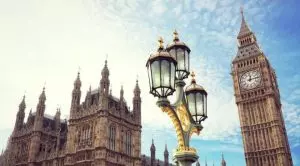 Political life in the UK has been shaken hard by the turbulence associated with the resignation of former Prime Minister Boris Johnson and a number of crucial figures in his Cabinet in July. A month and a half later, Liz Truss has taken over as Prime Minister but, sadly, the beginning of a new era in the country’s political life does not mean a new era for the local gambling sector is to start anytime soon. In fact, market experts believe that a gambling reform in the UK could be still a long way away.
Political life in the UK has been shaken hard by the turbulence associated with the resignation of former Prime Minister Boris Johnson and a number of crucial figures in his Cabinet in July. A month and a half later, Liz Truss has taken over as Prime Minister but, sadly, the beginning of a new era in the country’s political life does not mean a new era for the local gambling sector is to start anytime soon. In fact, market experts believe that a gambling reform in the UK could be still a long way away.
After beating out the ex-British Finance Minister Rishi Sunak in a heads-up battle, with 81,326 to 60,399 votes, Ms Truss got the support of the ruling Conservative Party and was eventually appointed as Prime Minister. Fully aware of the fact how much work she has to do, she has already pledged to bring reforms to the country, including to its gambling sector.
However, it seems that she has other priorities before addressing the issues of the local gambling industry.
For example, Prime Minister Truss has promised to take immediate action on the constantly increasing energy bills, while, on the other hand, there have been some indicators that she would be open to a more lenient approach when it comes to gambling oversight. According to some analysts, the new Prime Minister of the Uk is not going to spend much time on an issue that could result in the potential reduction of tax revenue and minimisation of a highly-profitable industry like gambling.
Cabinet Changes Likely to Further Delay Changes to the UK Gambling Industry
 After a significant delay, the new Government is expected to table its white paper on gambling by the end of September. However, experts believe that further delays are to follow as the new Prime Minister would try to put things in order, with the much-expected white paper even may end up fully discarded in case a completely different set of regulations is backed by Ms Truss and her Ministers.
After a significant delay, the new Government is expected to table its white paper on gambling by the end of September. However, experts believe that further delays are to follow as the new Prime Minister would try to put things in order, with the much-expected white paper even may end up fully discarded in case a completely different set of regulations is backed by Ms Truss and her Ministers.
As a whole, the current economic situation in the UK has forced many people to tighten their belts and reduce their spending. Inflation in the country has reached 18%, so this would be the issue that Ms Truss would seek to put under control as a top priority.
Over the last year, the cost of living in the country has significantly risen, putting pressure on a large part of the British population. Increasing energy prices have put additional pressure on the nation, especially considering the fact that Russia has recently announced that it would close the Nord Stream pipeline to Europe. So, at a time when the new Prime Minister would seek to grow the economy, cut taxes and take the energy crisis under control, the problems of the local gambling sector probably seem to be less significant issues. This is exactly why local lawmakers are likely to take their time before addressing the problems of this particular industry.
At the time when Liz Truss named her cabinet earlier this week, there had been speculation that Nadine Dorries would continue acting in the role of Culture Secretary under the new Prime Minister but she eventually decided to leave the cabinet. The role of Culture Secretary has been taken by Michelle Donelan.
Ms Dorries was known for her hard stance on gambling, as she has been supporting the implementation of stricter reforms of gambling regulation as a result of the long-delayed review of the sector that was rolled out by PM Boris Johnson’s Government in December 2020. Now, her departure from the Culture Secretary’s role is expected to cause further delays to the much-expected publication of the white paper. Much will also depend on her successor in the role, Ms Donelan, who has previously spoken in favour of the proposed gambling reform.
The UKGC Stands Still on Planned Gambling Reforms, Too
 The major gambling watchdog in the country – the UK Gambling Commission (UKGC) – is not moving forward with some of the planned and previously announced reforms, either. On September 2nd, the regulatory body officially announced that no requirement for gambling operators to stop advertising their products and services to vulnerable gamblers or customers at risk will be introduced for the time being.
The major gambling watchdog in the country – the UK Gambling Commission (UKGC) – is not moving forward with some of the planned and previously announced reforms, either. On September 2nd, the regulatory body officially announced that no requirement for gambling operators to stop advertising their products and services to vulnerable gamblers or customers at risk will be introduced for the time being.
Such guidance is not expected to be introduced by the Gambling Commission until February 2023, if the rules are introduced at all. Now, the regulator revealed that it is willing to hold a consultation with the gambling sector, focusing on operators’ bonus offers and other types of interaction with their customers.
Still, the UKGC will push forward some aspects of its reforms. As of September 2022, gambling companies in the UK will be required to enhance their identification of potential gambling-related harm. Operators will also be required to develop special automated systems that will help them in the process.
The aforementioned consultation on the rest of the topics associated with further reforms in the sector is set to begin later in September. As the UKGC revealed, they will last six weeks, with the results of the consultation expected to be officially announced sometime in December 2022.
- Author


